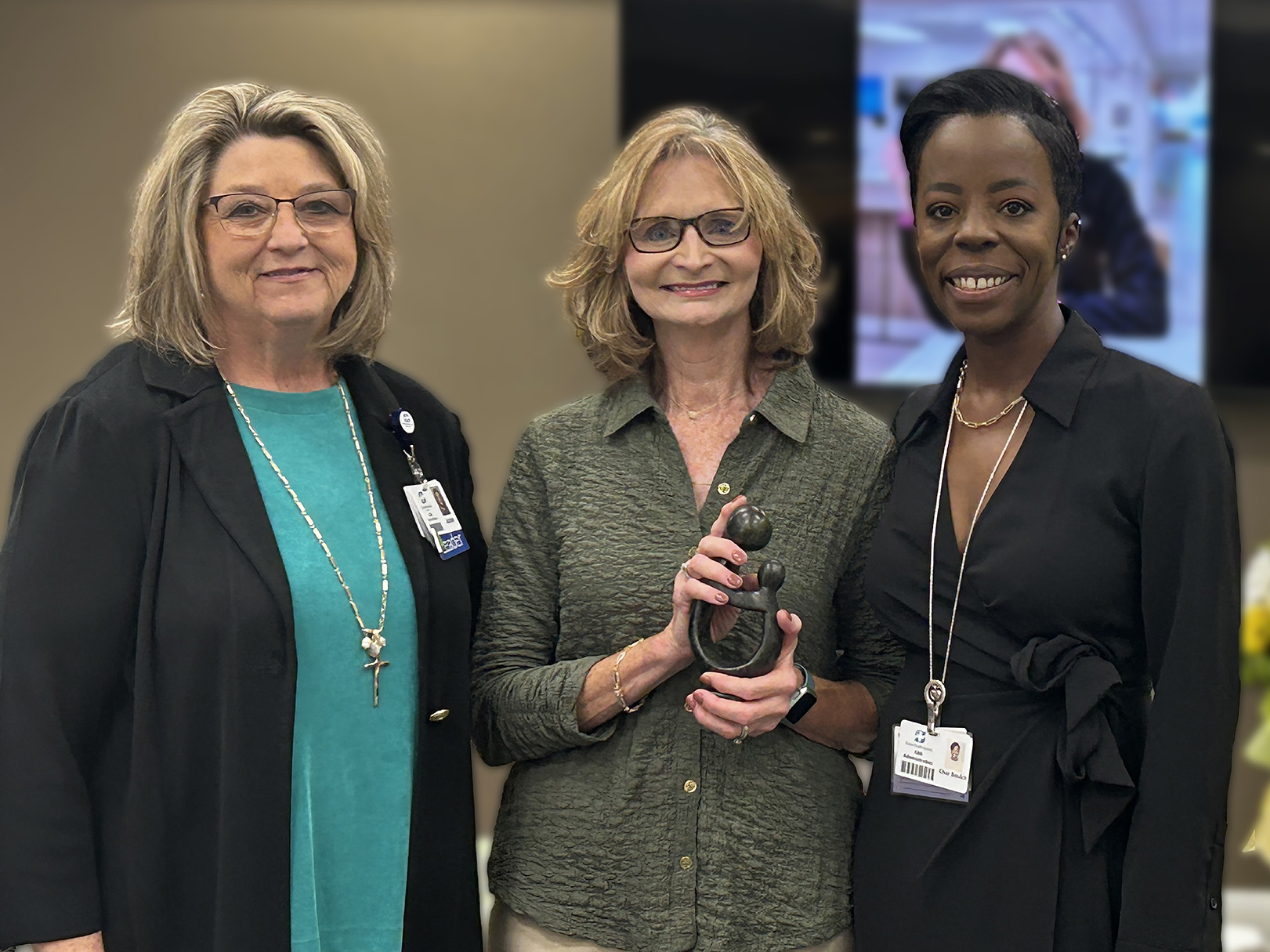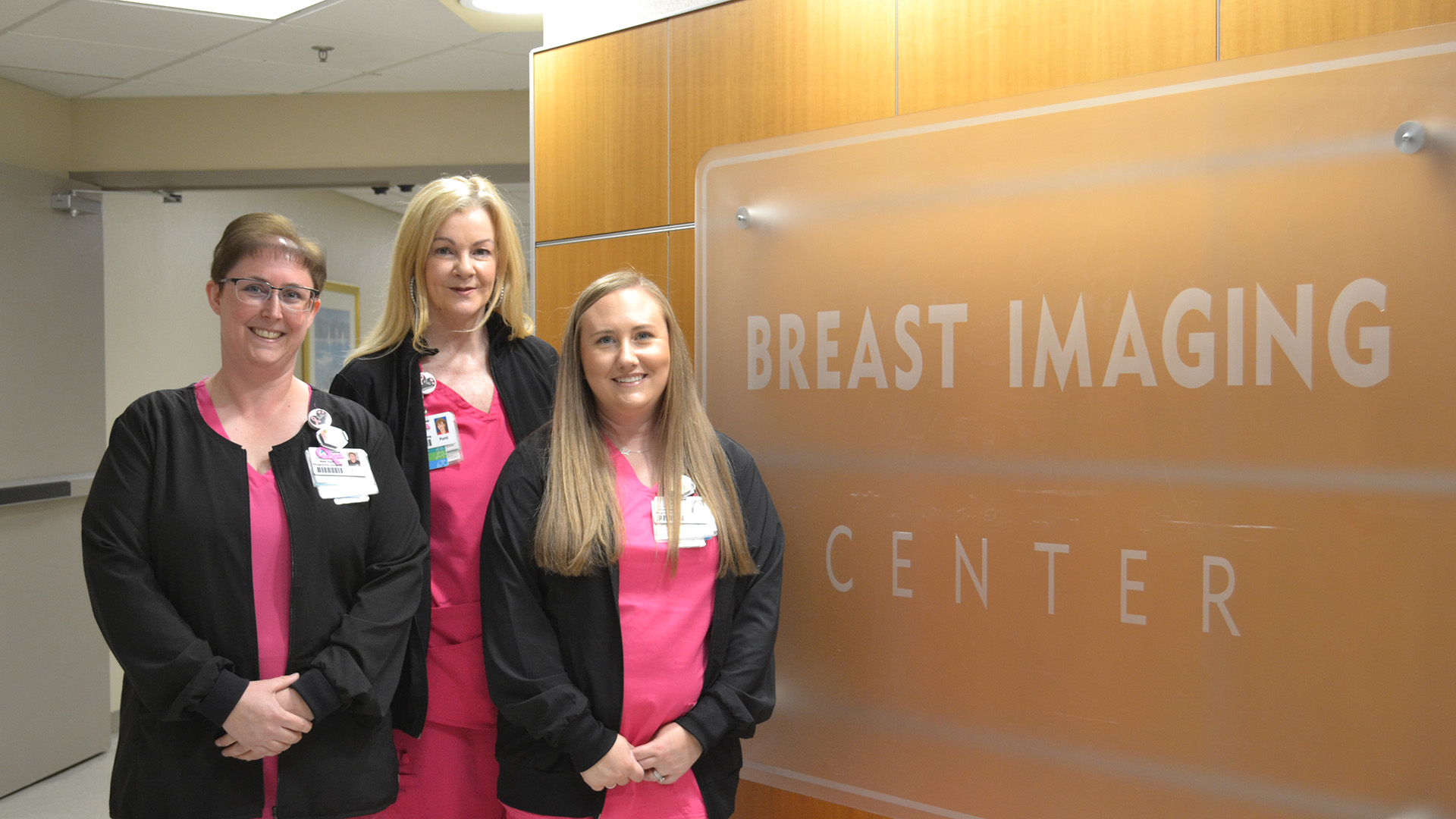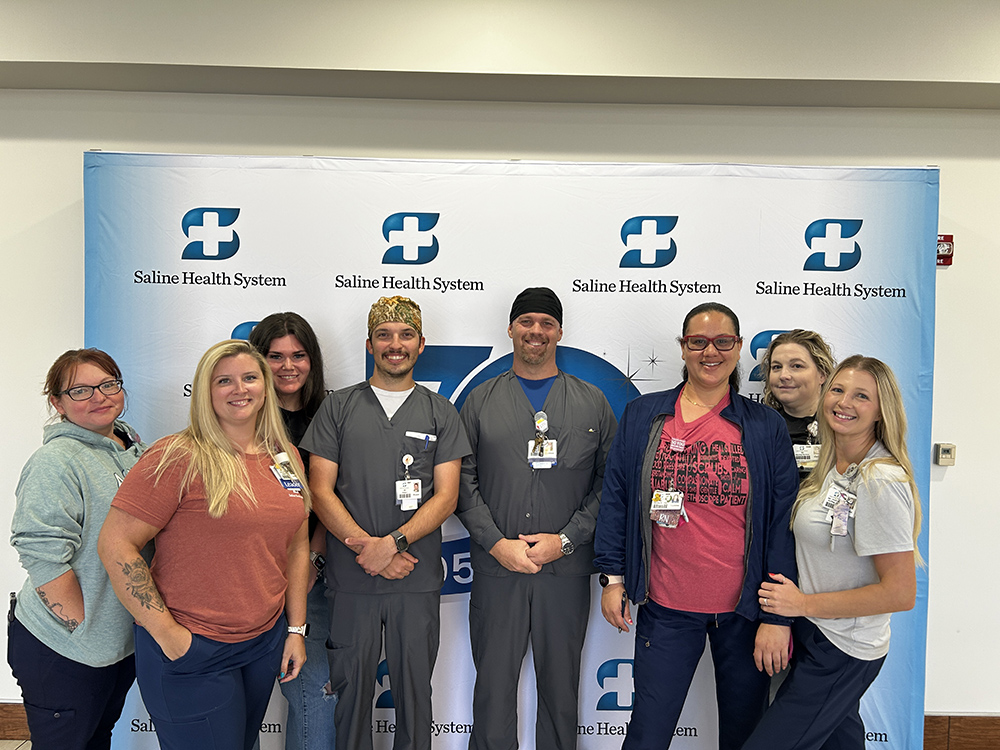News
-

Students share Works of Heart
February 17, 2026In recognition of American Heart Month, Saline Health System is hosting the Works of Heart art show in the hospital atrium from 6:30 to 7:30 p.m. Thursday, Feb. 26. Local students in grades 9-12 have submitted heart-themed art for the show for a chance to win in two categories: the Judges’ Choice Award and the People’s Choice Award. Each winner gets a $100 gift card, and each winner’s school gets a $500 art supply grant.
Learn more -
.png)
Winter storm update
January 27, 2026Due to weather conditions and in the interest of patient and staff safety, our clinics and the wound healing center will be closed on Wednesday, Jan. 28. All other services will be operating with their normal schedule. Saline Memorial Hospital’s Emergency Department remains open 24/7, inpatient services will continue as normal, and essential hospital operations remain in place to support patient care.
Learn more -

Why Calling 9-1-1 Could Save Your Life During a Heart Emergency
January 20, 2026As an interventional cardiologist, I want people to understand that calling 9-1-1 during a possible heart attack is the safest and most effective option — even if you live far from town or think you can make it to the hospital on your own
Learn more -

Healthy Habits to Start in 2026 for Better Overall Health
January 19, 2026The beginning of a new year offers a natural opportunity to reassess your health and build habits that help you feel better and stay healthier over time. While big resolutions can feel overwhelming or short-lived, the most effective changes usually come from small, sustainable strategies that are easier to maintain. In Benton,…
Learn more -

Community invited to honor loved ones in Heart Month flag display
January 16, 2026In recognition of American Heart Month, Saline Memorial Hospital is inviting the community to honor loved ones lost to heart disease by participating in a heart-shaped flag display designed to raise awareness of the nation’s leading cause of death for both men and women.
Learn more -
.png)
Veteran interventional cardiologist joins Saline Health System
January 08, 2026On Monday, Jan. 5, a new interventional cardiologist joined the team at Saline Health System. Dr. Ayman Alshami will be treating patients alongside Dr. Jeffrey Stewart and Katelyn Warren, nurse practitioner, at Saline Cardiology, a department of Saline Health System. Alshami said his goal is to create an environment where patients feel heard, supported and confident in their care.
Learn more -

Saline Memorial Hospital welcomes first baby of 2026
January 02, 2026Saline Memorial Hospital rang in the new year with a joyful milestone: the arrival of its first baby of 2026. Sutton, a baby boy born to Alexis and James, made his debut at 9:50 a.m. Jan. 1, weighing 6 pounds 13 ounces and measuring 19.5 inches. To celebrate the arrival of the new year and the new bundle of joy, the hospital presented the family with a basket of gifts, including a sound machine, a $50 Visa gift card and other essentials for both mom and baby.
Learn more -

New Arkansas law expands insurance coverage for bariatric surgery
December 31, 2025Beginning Jan. 1, 2026, a new Arkansas state law will significantly expand access to bariatric surgery by requiring many health insurance plans to cover medically necessary treatment for severe obesity. Historically, bariatric surgery was frequently excluded from insurance coverage, leaving many Arkansans unable to afford a treatment that is widely recognized as effective for managing obesity and obesity-related conditions such as Type 2 diabetes, hypertension and sleep apnea. The new law is expected to reduce financial barriers for eligible patients across the state
Learn more -

What Your Annual Blood Work Can Reveal About Your Health
December 22, 2025Your yearly blood work gives your provider information they can’t see during a physical exam, sometimes before you notice any symptoms at all. Blood work isn’t only for sick visits – routine lab work plays a key role in preventive care and long-term health. In Benton, Arkansas, many adults…
Learn more -
.jpg)
Saline Health System names new CFO
December 03, 2025On Dec. 1, Saline Health System welcomed Amy Rice as its new chief financial officer.
Learn more -
.jpg)
Is It a Cold, the Flu, or Something Else? How to Tell the Difference
November 25, 2025When your child starts coughing, sneezing, or running a fever, it can be hard to know what you’re dealing with. As the seasons change and kids head back to school or daycare, coughs and sniffles start making the rounds. Here in Benton, AR, that often leaves parents asking: is it just a cold, or something more serious like the flu, RSV, or…
Learn more -

Saline Memorial Hospital earns Grade A in patient safety from Leapfrog
November 17, 2025For the third consecutive rating period, Saline Memorial Hospital has earned an “A” hospital safety grade in the fall 2025 report from The Leapfrog Group, an independent national nonprofit watchdog focused on patient safety. The designation places Saline Memorial among the safest hospitals in the nation.
Learn more -

How to Prepare for a Healthy New Year
November 07, 2025If you want to have a healthy year in 2026, now is the time to talk to your primary care physician, schedule any preventive screenings you may have missed, and make sure you’re getting the most out of your health insurance. Here are some tips on how you can set yourself up for success during the year ahead.
Learn more -

Saline Health System among the nation’s top 10% for exceptional, patient-centered care
November 04, 2025Healthgrades has named Saline Memorial Hospital among the nation’s top-performing hospitals for patient safety, awarding it the 2025 Patient Safety Excellence Award™. The award recognizes hospitals that consistently protect patients from serious, potentially preventable complications during hospital stays.
Learn more -

What Does Breast Cancer Look Like in Its Early Stages?
October 21, 2025Breast cancer is one of the most common cancers in women, and early detection can dramatically improve outcomes. But what does breast cancer actually look like in its earliest stages? It’s not always a visible lump – early signs can be subtle, and knowing what to watch for can make all the difference. Below are some common early signs and symptoms to be…
Learn more -

Saline Health System nurse honored with DAISY Award
October 03, 2025After 35 years of dedicated service, a registered nurse at Saline Memorial Hospital was recognized on Wednesday, Oct. 1, with the DAISY Award, one of nursing’s most prestigious honors. Tracy Goodwin has dedicated her entire nursing career to supporting parents during the birthing process as part of the hospital’s labor and delivery department. Payton Mills, the department’s director, said Goodwin’s calming presence has brought reassurance to countless parents and helped create positive birth experiences.
Learn more -

Saline Health System to host breast cancer awareness event
October 02, 2025To raise awareness about breast cancer and the need for mammography, Saline Memorial Hospital is hosting the Bosom Buddies Bash event from 2 p.m. to 5:30 p.m. on Tuesday, Oct. 21.
Learn more -

Shared Governance Council at Saline Health System gives nurses a voice
September 26, 2025Shared Governance Council at Saline Health System gives nurses a voice. “Shared governance is recognized now as a standard of care for hospitals who truly value their nurses and their input in the clinical decision-making process,” said Rhonda Hixon, the hospital’s quality performance coordinator and sepsis coordinator. “It allows nurses to have a voice and creates a partnership between nurses and the administration and other decision makers.”
Learn more -

Why You Shouldn’t Skip Your Annual Physical: Screenings That Save Lives
September 26, 2025Many people put off their annual physical, if they feel fine, there’s no urgent need to visit the doctor. But skipping your yearly check-up can mean missing the early signs of serious conditions that are often treatable if caught early. At Saline Memorial Hospital, we believe prevention is just as important as treatment. Your annual physical is a chance…
Learn more -
82d6295c408a47ff9bde17d2919acbcc.jpg)
Patient Experience Spotlight: Paula
September 22, 2025“Everybody worked together like a well-oiled machine,” Paula said. “I was born here, and other than a couple instances with OB-GYN and neurosurgery, I come here for all my healthcare needs because of the personal care I receive here. It’s like everybody here genuinely cares about me and what happens to me.”
Learn more
